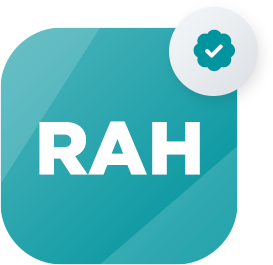how do i enter invoice from Insurance Broker that has premium funding with monthly payments
Comments
-
Hi Tash Don't make it hard for yourself. All you do is Enter a Bill. Read from the Bill for details.
E.G. You are paying Premium Funding (that is the Supplier name). Date of the Invoice, Invoice Reference, Total amount of the Funding.
For Account Motor Vehicle Insurance NCG (premium amount and GST), Next line MV Insurance NCF (Stamp duty of the MV insurance)
Split the same way for Landlords Insurance (that is Landlords Insurance premium and Stamp Duty) and Work Cover.
Last line charge from Premium Funding (sometimes around $100 or so). Can split this over the 3 insurances or code to Bank Charges (NCF I think).
For the first payment there will be a small charge from Premium Funding but the next payments will be the same amounts.
You will see the Direct debit on the bank statement. Go to Pay Bills, Enter the amount PF have deducted, down the bottom make sure you have the right date and where the payment is coming from e.g. Bank or Credit Card.
Once you have made the first payment, you can go to Pay Bills and you will see there is a balance left to pay. If you were to divide that amount by say 11, that should calculate the exact amount of each months payment. Could be a cent or so difference at the end.
No need for Journals. Hope you can follow the above.
1 -
Thanks for this Shirley. I have previously calculated all the separate details in a spreadsheet then created separate monthly bills (with split details as you have indicated), and showing the monthly payment due dates. By doing it as a single bill how do you then not have a regular overdue bill showing up in your accounts payables reports?
0 -
Hi Tash If you put the Bill in at the date of the invoice, the total amount owing will show in your Accounts Payable until the payment is finalized. If the payment has been set up with PF as an automatic deduction, you are not going to miss paying as you will pick it up on your bank statement when you are reconciling if you have not already marked off the monthly payment in Pay Bills. You are only creating more work for yourself by setting up a spreadsheet when the Reckon program can handle the work for you.0
-
Thank you Shirley!! I just thought I needed to account for both bills in my accounts . Plus was concerned re prepaid expenses but I'm taking your approach ! As the Meerakat says "Simples"0
-
I have a question about this. When I put the bill in it inputs the total GST component. I'm on cash accounting so it means that my GST account is wrong (as I haven't paid the total of the bill by the end of the quarter). The GST account has 100% of the GST but I've only paid a few instalments and have actually not incurred all the GST. How do I get around this so the GST is allocated at the time of payment?
0 -
The GST paid does not appear on your tax summary report until such time as the bill is paid. If it is partly paid Reckon takes that into account and only includes a prorata amount on the tax summary report. (This is the report you need for the BAS) However some reports make it appear otherwise
0 -
Thanks, I was wondering why the balance on the GST transaction account and the summary report was different. I always like to match the GST on the BAS with the GST in the transaction listing but guess this is not possible when paying by instalments. Thanks for clearing it up.
0 -
@cheznuts When your insurance is premium-funded, it is paid - not by you directly but by the funding company on your behalf.
Think of it like when you purchase something with a credit card - The purchase/payment transaction happens at the time, but you pay off the loaned funds (via a "credit card repayment") after the fact. You've still "paid" it at the original purchase point so the expense is still deductible - along with the full amount of GST being charged - at that point, on a "Cash" basis.
The correct process for handling premium funding is to enter the full Insurance Bill with the relevant NCF & NCG lines as applicable.
You then enter a GJ DR Accounts Payable (with your Insurer Supplier's Name in the Name column), CR to "Ins Premium Funding" (Current Liability-type) account. For the additional charges - such as Admin Fee & Interest - you can either enter these expense lines here too (with NCF Tax Item) OR you can leave the GJ as is & enter the Admin Fee & Interest components split across the repayments accordingly.
The GJ serves 2 purposes ... The Accounts Payable line shows as a Bill Credit in your Pay Bills window which you then allocate to "pay" the Bill. It also creates your repayable funding (loan) opening balance.
The repayments should be entered via a Write Cheque posting directly back to your "Ins Premium Funding" liability account. Note: Do NOT use a tax code on these repayments - The expense(s) have already been entered/claimed previously via the Bill/GJ. This is simply a transfer of funds from your bank account to repay the loan! 😊
Shaz Hughes Dip(Fin) ACQ NSW, MICB
*** Reckon Accredited Partner (AP) Bookkeeper - specialising EXCLUSIVELY in Reckon Accounts / Hosted ! ***
* Regd BAS Agent (No: 92314 015)* ICB-Certified Bookkeeper* Snr Seasonal Tax Consultant since 2003 *
Accounted 4 Bookkeeping Services
Ballajura, WA
(NB: Please give my post a Like or mark as Accepted Answer if I have been able to resolve your query as this helps others when seeking solutions!)
1 -
Dear Shaz, thank you for your response, it's exactly what I was after. Appreciate you taking the time to explain it so clearly. Jane
1 -
No problem at all @cheznuts - Glad you found it helpful 😊
Shaz Hughes Dip(Fin) ACQ NSW, MICB
*** Reckon Accredited Partner (AP) Bookkeeper - specialising EXCLUSIVELY in Reckon Accounts / Hosted ! ***
* Regd BAS Agent (No: 92314 015)* ICB-Certified Bookkeeper* Snr Seasonal Tax Consultant since 2003 *
Accounted 4 Bookkeeping Services
Ballajura, WA
(NB: Please give my post a Like or mark as Accepted Answer if I have been able to resolve your query as this helps others when seeking solutions!)
0
Categories
- All Categories
- 6.9K Accounts Hosted
- 11 📢 Reckon Accounts Hosted - Announcements
- 6K Reckon Accounts (Desktop)
- 3 📢 Reckon Accounts Desktop - Announcements
- 1.2K Reckon Payroll 🚀
- 21 📢 Reckon Payroll - Announcements
- 21 Reckon Payroll Help Videos 🎥
- 21 Reckon Mate App
- 3.1K Reckon One
- 7 📢 Reckon One - Announcements
- 11 Reckon Invoices App
- 14 Reckon Insights
- 114 Reckon API
- 830 Payroll Premier
- 326 Point of Sale
- 2K Personal Plus and Home & Business
- 75 About Reckon Community
 Accredited Partner
Accredited Partner
 Reckon Accounts Hosted Expert
Reckon Accounts Hosted Expert